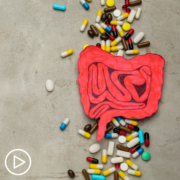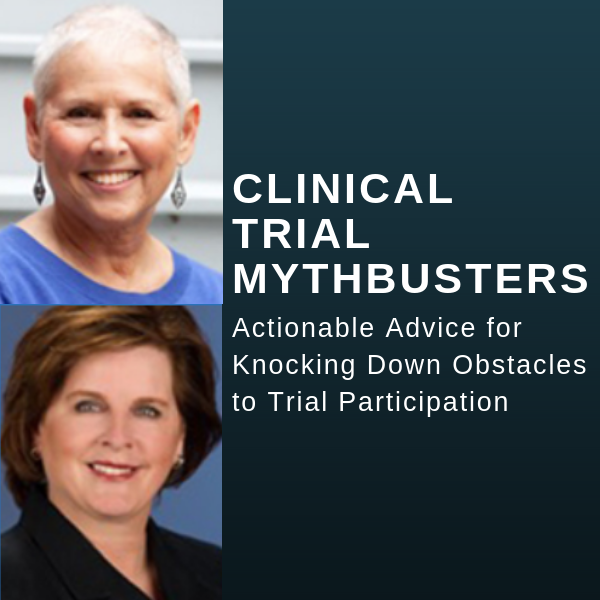Expert Advice | Managing AML Symptoms and Treatment Side Effects
Expert Advice | Managing AML Symptoms and Treatment Side Effects from Patient Empowerment Network on Vimeo.
The symptoms of acute myeloid leukemia (AML), or side effects of treatment, can have an impact on daily life. Dr. Alice Mims, an AML specialist, discusses how common issues are treated and talks about why it’s important to share what you’re going through with your healthcare team.
Dr. Alice Mims is a hematologist specializing in acute and chronic myeloid conditions. Dr. Mims serves as the Acute Leukemia Clinical Research Director at The Ohio State University Comprehensive Cancer Center – James. Learn more about Dr. Mims.
Related Resources:

|

|

|
Transcript:
Katherine Banwell:
When it comes to living and thriving with AML, Dr. Mims, managing disease symptoms and treatment side effects is a big part of that.
Would you talk about how symptoms and side effects can impact life with AML?
Dr. Alice Mims:
Sure. So, I think from my perspective, what we are always trying to do when we’re moving forward with a treatment plan is of course, get patients into remission, but the purpose of getting into remission is not just to achieve that, but for patients to have quality of life. And so, there needs to be continued dialogue between the patient and the treatment team about how you’re feeling during treatment. Because they’re definitely based off of therapy, different side effects, things that could be not necessarily due to active leukemia anymore. And so there may need to be dose adjustments and other things that we do to the regimens in order to make you feel as good as possible while continuing on treatment.
Katherine Banwell:
Why is it so important for patients to speak up about any issues they may be having?
Dr. Alice Mims:
I think it’s important because you’re your own best advocate. Being the patient, being the person who’s living with having this diagnosis and going through the treatment, myself, or other colleagues as physicians, we can have a sense of what may be going on based off of numbers. But we’re not truly going to know how you’re feeling unless you speak up and let us know. And there may be things we could do with supportive medications, dosing adjustments as mentioned, that could help in making you hopefully feel better and less side effects and toxicities from treatment.
Katherine Banwell:
What are some common symptoms and side effects that you hear about?
Dr. Alice Mims:
Okay. Sure. So, different side effects that I would say that people can have, people can feel fatigued just from treatment in general. Some of our therapies can cause neuropathy, skin rashes, nausea, vomiting, diarrhea. And so, all of those are important along as mentioned with symptoms you may have from decreased blood counts that we do have interventions that we could implement to help the – make the therapy more tolerable.
Katherine Banwell:
So, for the side effects like fatigue, for example, what do you do about that?
Dr. Alice Mims:
So, I think it depends on the level of fatigue. Of course, we don’t have – I wish we had a pill that could just make fatigue improve. But if it’s really that the treatment is deriving it, and it’s impacting your quality of life, there are dose reductions or things we can do that may help with the level of fatigue you’re experiencing.
Katherine Banwell:
And what about some of the other side effects. You mentioned diarrhea.
Dr. Alice Mims:
Sure.
Katherine Banwell:
How is that handled?
Dr. Alice Mims:
Yeah. So, for issues from GI complications such as nausea, vomiting, diarrhea, we have really lots of choices for anti-nausea medicines and different combinations we can use or newer antiemetics that can help with that. And from a diarrhea perspective it depends on the treatment. But, of course, we want to make sure first and foremost there’s no infection. And if not, then there are good antidiarrheals we could add on to the regimen to help with that as well.










